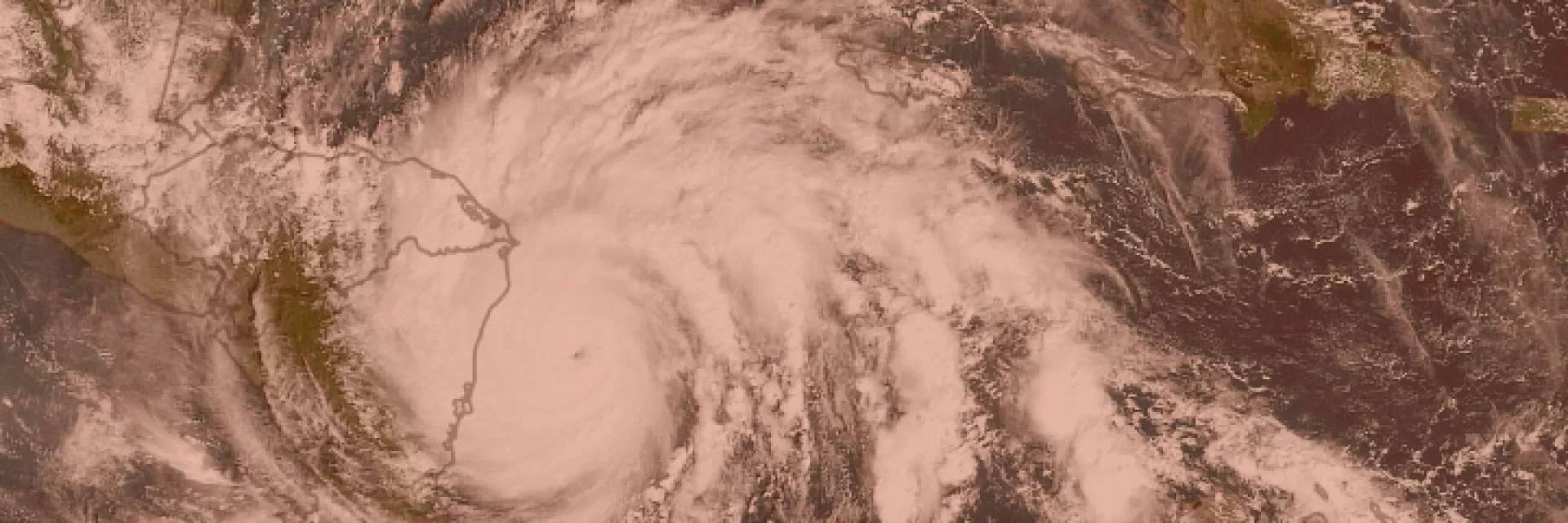On Monday, November 16, Hurricane Iota struck Nicaragua about 15 miles from where Hurricane Eta made landfall 13 days prior.
As with Eta, the government mobilized the army and police forces to evacuate people from the coast prior to Iota - tens of thousands of people. This no doubt saved many lives. However, wind and rain took its toll, as rivers overflowed and hillsides collapsed. Four people died in a mudslide in the Los Roques sector of the municipality of El Tuma-La Dalia. Another six people died in flooding in Carazo and Wiwili. Alliance for Global Justice’s NicaNotes has more detail here. In total, the government reports 21 deaths from Hurricane Iota.
Among the clear immediate and longer term effects of the storms is food insecurity. Crop loss in areas around the country is enormous. For example, the Humboldt Center estimates:
- In the municipalities of Bilwi, Prinzapolka and the Mining Triangle, there were average losses of 90% in the crops of rice, beans, musaceae (bananas and plantains) and tubers, among others.
- In the departments of Matagalpa, Madriz, Nueva Segovia and Estelí: Major losses are reported for beans, rice, vegetables, citrus fruits, tobacco and coffee. In the production of basic grains, losses are estimated between 60% and 90%; a 20% loss in coffee production.
- In the municipality of San Juan del Sur in Rivas, the estimate is that 100% of corn, beans and rice crops were lost due to floods and strong gusts of winds.
Preliminary estimates from Nicaragua’s government are that “the total cost of damages from Hurricanes Eta and Iota could amount to USD $400 million, approximately 3% to 4% of national GDP. Assessments from Hurricane Eta alone indicated USD $178m worth of damage to homes, public services, infrastructure, businesses, agriculture, fishing and more, and Iota had a greater radius and intensity. Treasury Minister, Iván Acosta, said that the government’s priority now is protecting the lives and wellbeing of the citizens, but a full evaluation will be carried out as soon as possible.”
Current Responses
Over the coming months we will be focused on providing support for emergency response and longer-term reconstruction assistance. We will also be asking people to speak out on areas of U.S. policy that can have an impact in Nicaragua and other countries in Central America. This is what we are focused on now:
Funding: The Quixote Center will be coordinating emergency response with our long time partner, the Institute of John XXIII. Over the next few weeks our focus is on the purchase of food and hygiene kits and delivery of these items to the coast.
FOOD PACKAGE CONTENT - US $ 34.00
- Rice 5 KG
- Beans 5 KG
- Oil 2 Ltr.
- Sugar 2.5 KG
- Oats 4 Bag of 1 Lbr.
- Maseca 2 Bags of 1 Lbr.
- Maggi Soup 4 Bags
- Spaghetti 4 Bags
PERSONAL PROTECTIVE EQUIPMENT - US $ 20.00
- Face masks
- Liquid soap
- Mosquito repellent
- Gloves
Advocacy: The U.S. government must immediately halt all deportations to Guatemala, Honduras and Nicaragua. The only country where there has been a halt in deportations is Honduras, and only because the airport in San Pedro Sula is literally under water.
Representative Nydia Valezquez (D-NY) has introduced legislation to extend Temporary Protected Status to Guatemala, Honduras and Nicaragua. The Hurricane Eta Relief Act of 2020 would suspend most deportations to these three countries - though clearly this faces an uphill battle with the current Senate and President. You can call the Congressional switchboard and ask your member of the House to support this legislation: 202- 224-3121.
